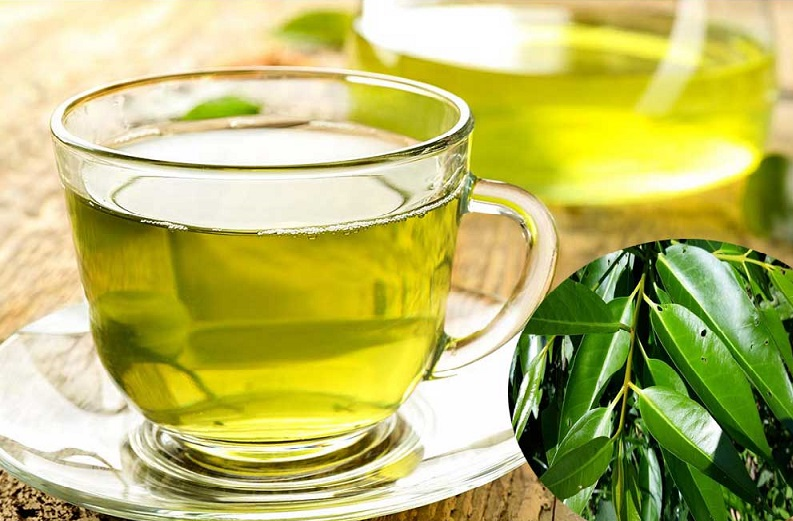
Vối leaves and buds are a very popular summer drink - Illustration photo
Dr. Phung Tuan Giang, President of the Vietnam Institute for Research and Development of Traditional Medicine, said that according to traditional medicine, the guava tree is widely known to support the treatment of flu and some digestive diseases.
In addition, guava leaves and flower buds are also used topically to help treat inflammatory conditions, including bruises, acne, and ulcers.
The main constituents of guava were identified as oleanane and ursane-type triterpenoids, C-methylated flavonoids, and polycyclic phloroglucinols. Of these, C-methylated chalcone is considered the main and pharmacologically active constituent of this plant.
What are the notable effects of guava leaves?
Several pharmacological effects have explained the medicinal uses of this plant in folk medicine, such as antiviral, anti-inflammatory and antioxidant activities.
Furthermore, other interesting bioactivities were also discovered, such as anti-cancer and anti-diabetic properties, which greatly contribute to the potential clinical application of this plant.
Vietnamese traditional medicine documents record that the leaves and flower buds of the guava tree are used to support the treatment of digestive diseases, stomachaches and diarrhea. In addition, the flower bud decoction is used externally to treat wounds, itchy ulcers and acne while the bark is used for its antiseptic effect.
In Chinese folk medicine, the leaves and bark of the guava tree are used externally to treat skin ulcers, scabies, and other skin diseases. When taken orally, a decoction of guava leaves is used to treat diarrhea, boils, and mastitis.
The flower extract is also used to treat flu, dysentery and indigestion; while the root is used to treat jaundice and stomachache.
Also according to physician Phung Tuan Giang, besides pharmacological effects such as anti-cancer, anti-diabetic, anti-oxidant and anti-inflammatory activities, myrtle extract and its chemical components are also studied in other biological tests, such as cardioprotective, antibacterial, anti-cavity, cell-protective and anti-osteoclast activities.
However, these studies are currently in their early stages, requiring further studies on the mechanism of action and animal models to support future clinical application.
"Although a large number of pharmacological studies have been conducted, there are still no comprehensive studies to evaluate the toxicity and safety of the plant.
Acute and subchronic toxicity assessments should be performed to determine the potential risks and adverse effects of myrtle and its active ingredients.
Pharmacokinetic and pharmacodynamic studies are also important to evaluate the absorption, distribution, metabolism and excretion of active ingredients, thus providing dosage estimates for humans," emphasized physician Phung Tuan Giang.
Should I drink guava leaf tea regularly?
Physician Phung Tuan Giang said that guava leaf and flower bud water is a familiar drink for Vietnamese people. Not only is it a refreshing drink or dessert, guava water also has many health benefits.
However, when drinking, you should note: do not drink overnight guava leaf tea, you should mix a new bottle of water every day; you should drink guava leaf tea after eating, and when hungry, you should not drink concentrated guava leaf tea.
Do not drink too much guava leaf tea and do not completely replace filtered water; pregnant women, children under 12 years old and those with excessive physical weakness should not drink guava leaf tea that is too concentrated or drink too much.
 Water shop next to Ghenh temple
Water shop next to Ghenh templeSource: https://tuoitre.vn/uong-nuoc-la-voi-thay-nuoc-loc-duoc-khong-20240917223915985.htm



































































































Comment (0)